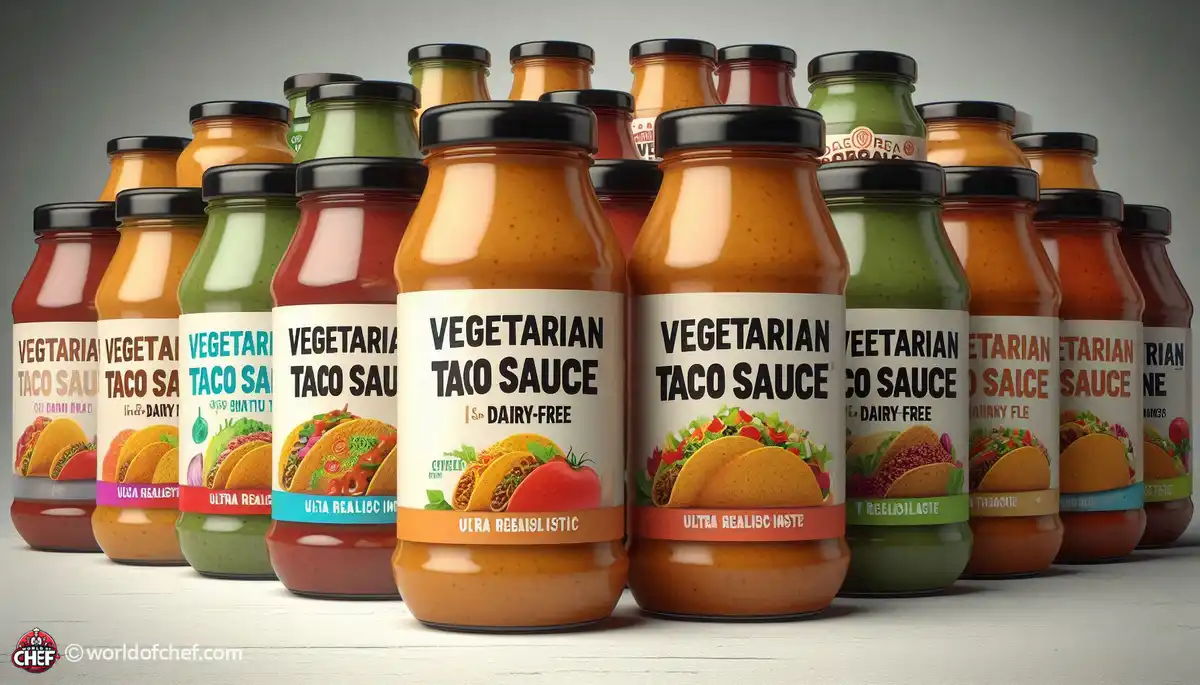
Vegan Salad Meal Prep: Tips and Tricks for Easy Weekday Lunches
Autumn Sparrow - Oct 6, 2024 - 6 min read


Thai food is famous worldwide for its bright, bold flavors, aromatic spices, and intricate balance of sweet, sour, salty, and spicy elements. Fish sauce is a staple ingredient in many Thai dishes-a pungent, salty condiment produced from fermented fish. Used in an enormous variety of recipes-from stir-fries and curries to salads and dipping sauces-fish sauce contributes a distinctive umami flavor that adds depth and complexity to Thai dishes.
Even though it is one of the most used sauces in traditional cooking, the traditional fish sauce remains an issue to vegetarians and people allergic to seafood. Fortunately, several vegetarian alternatives exist that can imitate the salty flavor of fish sauce without any form of animal content.
The closest competitor for fish sauce could probably be soy sauce. Fermented from soybeans, wheat, and salt, soy sauce possesses similar salty and savory Flavor Profiles without having any fishy taste because it is abundant in umami flavors, hence versatile for most dishes seen in Thai cuisine.
Tamari is one type of soy sauce, traditionally without wheat. That makes it safe to be used with people who have gluten intolerance. It's much darker than regular soy sauce and its flavor richer as well, which would complement the intensity of the flavors in many Thai dishes. Tamari can replace fish sauce on a 1:1 basis. Since it tastes savory and contains no taste of fish, it should be useful to those cooking with recipes using fish sauce. It harnesses the power of fermented ingredients.
Fermented tofu, also known as tofu miso, is a traditional Chinese condiment that is made from fermented soybeans and salt mixed with water. It tastes salty and umami and, if prepared with fish sauce or added soy sauce and vinegar, may clearly call the umaminess of the fish sauce to mind. However, it won't taste just like fish sauce, but fermented tofu is able to add incredible depth and richness to Thai dishes, particularly when it has been made with additional seasonings such as soy sauce and vinegar.
Fermented mushroom sauce is another beautiful vegetarian substitute for fish sauce. The sauce comes from fermented mushrooms, therefore adding an earthy taste component and a touch of umami. It's quite great in various Thai recipes, adding a richly savory depth without any product containing fish.
Tamarind paste is one of the essential ingredients in Thai cooking. It has just the right amount of sweet and sour flavor. The pulp from the fruit provides a tasty sourness to the dish. Though it can never be compared with the umami taste that fish sauce provides, tamarind paste can still be used to make sure the dish has the acidity and depth required in the recipes of Thailand.
Vegan fish sauce is prepared specifically so that it tastes and has a similar smell to genuine fish sauce but without one's using any animal derivatives. It is typically ready using seaweed, sea salt, and a choice of spices. Even as the ingredients may vary from recipe to recipe, an example of vegan fish sauce may be used as an alternative with a taste most like salty, savory flavouring which is appropriate in Thai dishes.
Kaffir lime leaves are a staple ingredient in Thai cuisine; their citrusy flavor and aroma give them an enormous value. Their refreshing floral note makes dishes even better and helps balance the richness of other ingredients. They won't be able to duplicate the umami of fish sauce, but kaffir lime leaves impart a very distinct flavor profile that can be seen in so many traditional recipes.
Another very common aromatic herb is lemongrass, widely used in Thai preparations. Bright citrus flavor with ginger and mint notes create a refreshing quality to the dishes. This herb, while not something to be used in place of the salty depth fish sauce provides, might be added when a burst of flavor will fill out the other seasonings and ingredients of Thai preparations.
Shiitake mushrooms have tons of umami compounds. They are meaty in flavor and chewy when rehydrated. Ground or finely chopped, dried shiitake mushrooms add deep savory flavor to any dish without using fish sauce.
Coconut aminos are the alternative version of soy sauce that is produced from the sap of the blossoms of coconuts. It has a saltier and sweeter flavor with a hint of taste more similar to fish sauce. Unlike regular soy sauce, coconut aminos contain a much smaller quantity of sodium contents, thereby making it a healthier alternative in many diets.
Added to Thai cooking for its mild acidity and subtle sweetness, rice vinegar gives dishes a tang without overpowering other flavors. Though it does not equate the umami of fish sauce, rice vinegar can supply the balance and brightness needed in some Thai recipes to play off savory ingredients.
Lime juice is a fundamental ingredient in Thai cooking. It's frequently used for its bright and Zesty Flavor, making dishes refreshing and full of acidity to cut through the richness and spiciness of some dishes and create a perfect balance in terms of flavor. Even though lime juice does not offer the umami taste as fish sauce does, it can help to create an acidity and freshness in a Thai recipe.
Thai food is very aromatic. While the recipes of most dishes contain fish sauce in a majority of the dishes, there are still many vegetarian options. There's no need to miss out on the flavors of Thai cooking if you're a vegetarian or allergic to seafood. You can simply enjoy more of the plant-based alternatives. The good thing is that with these vegetarian alternatives, you can continue to enjoy the flavors of Thailand without having to give up on your preference.

Autumn Sparrow - Oct 6, 2024 - 6 min read

Juan Welborn - Oct 6, 2024 - 7 min read

Nathaniel Hannan - Oct 5, 2024 - 6 min read

Rebecca Bunker - Oct 5, 2024 - 6 min read